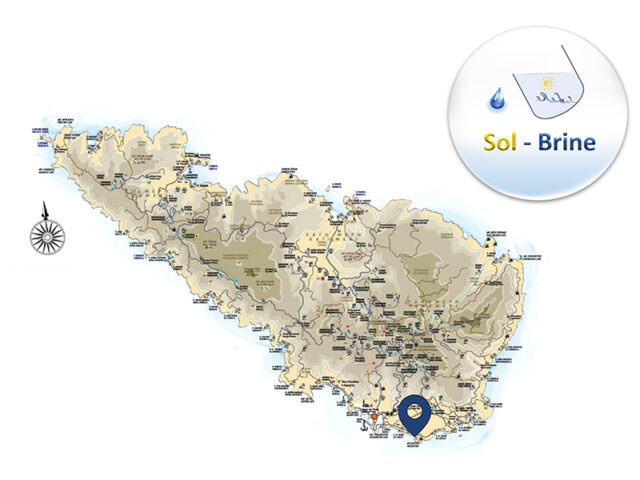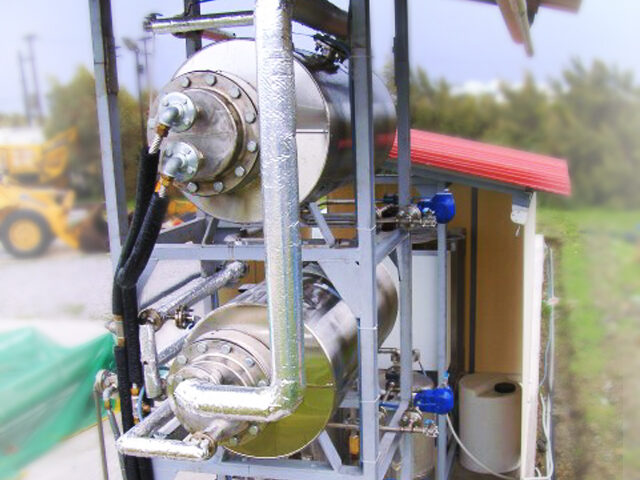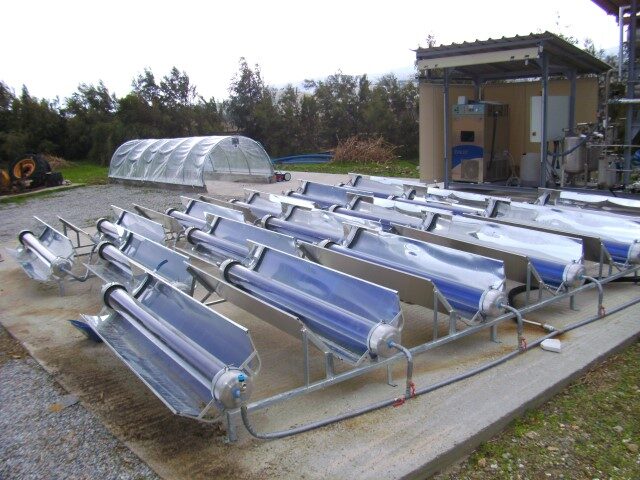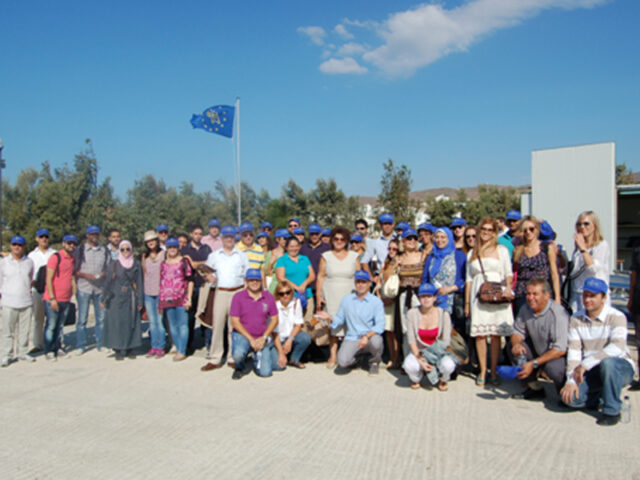WHO WE ARE
Our Story
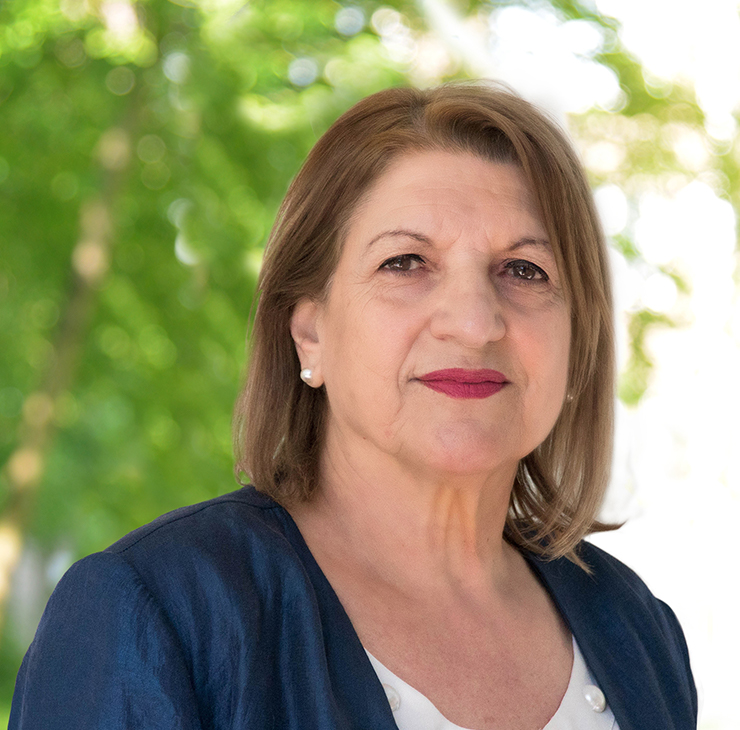
The beginning
Our journey started in 2010 when the EU-funded project SOL-BRINE (LIFE09ENV/GR/000299) was granted.
The project was implemented in Tinos, Greece with the coordination of the Municipality of Tinos and the cooperation of the associated beneficiaries National Technical University of Athens and Culligan Hellas SA. Dimitris Xevgenos was the principal investigator in the SOL-BRINE project, coordinating the design of the innovative SOL-BRINE system (topic of his PhD Dissertation), under the supervision and mentoring of Prof. Maria Loizidou.
The aim of the SOL-BRINE project was to minimize the environmental impact of desalination by using solar power to separate the brine produced by desalination into its component parts – water and salt – which could then be marketed and used. This process would in turn eliminate the dumping into the sea of the brine, preventing the degradation of the marine ecosystem so important for communities as a food source and tourist attraction and provider of other ecosystem services. In tackling water scarcity and commercializing a waste product of desalination, this innovative project helped to deliver the goals of the EU’s Water Framework Directive, climate adaptation policy and circular economy packages.
The desalination plant of SOL-BRINE project in Tinos, Greece
Towards commercialization
SOL-BRINE’s effect on Tinos island has been profound. The prototype system has the capacity to treat 200 tons of brine annually and recover useful end products that can boost its local economy. The commercial value of the 12 tons of harvested salt offers new income streams for communities hard-hit by recession and heavily reliant on tourism. And the environmental effect is dramatic – not only in terms of vastly reduced carbon emissions and the production of 82 kWh of renewable energy, but in the rejuvenation of the inshore waters around Tinos, and in particular the health of the sea grasses that are the bedrock of the island’s biodiversity.
The project was awarded with the 1st prize in the Blue Growth Piraeus Competition in 2014, was within the Best LIFE Environment Projects of 2015 and it also won the 1st prize of the Green Award at the Environment category in 2017, from the LIFE financial instrument of European Commission. Especially for the later, SOL-BRINE was selected as the best life environment project out of 4,306 EU projects implemented over 25 years (1992-2017).
Inspired by the successful outcome of the pilot phase of SOL-BRINE, the project consortium sought to upscale and commercialize its work. Thus, in November 2015, the company SEALEAU was born in the Netherlands. Having been selected within 15,000 applicants, SEALEAU received the incubation support and coaching from the STARTUPBOOTCAMP HighTechXL, in Eindhoven.
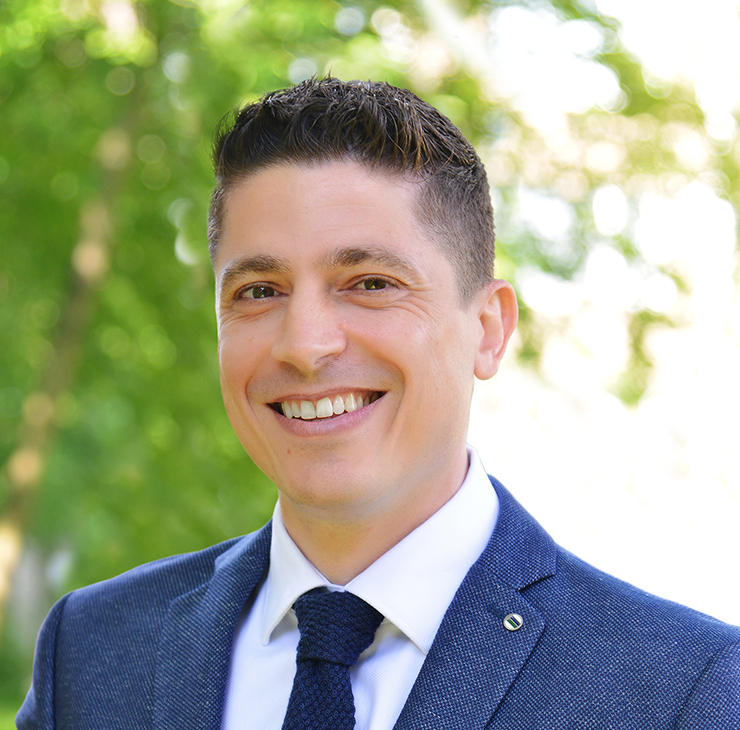
Business novelties
Apart from the technical novelty of the SOL-BRINE system, it should also be highlighted the business novelties that this model offers to the desalination market too. Thus, after the successful demonstration of the proof of concept at pilot scale in 2010, SEALEAU continues its innovative path one step further, towards commercialization.
Over the past decade, SEALEAU not only has demonstrated its technology in pilot (TRL 5 – SOL-BRINE project), demo (TRL 6 – ZERO BRINE project) and large demo in operational environment (TRL 7 – WATER-MINING project), but also has created all the necessary market conditions for successful implementation of our innovation to the market. More particularly, SEALEAU has developed a strategic business plan (within the SME Phase 1 project GReen Desalination), has gained significant customer traction from engaged clients (through Letters of Intent), as well as a signed strategic collaboration agreement with its key partners for providing a turnkey solution.
Our Greek origin reflects in our logo
Greece has been known from ancient years, for its pioneering inventions and discoveries in the scientific world. Ancient Greeks’ innovative way of thinking inspired achievements and motivated generation after generation to invent and leave behind a remarkable scientific itinerary. Modern Greeks have also a lot to offer in the global technological development; thus, with our work we would like to praise and honor our Greek origin.

